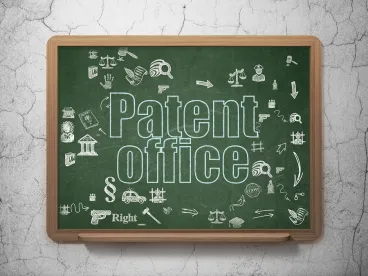In In re Queen’s University At Kingston, a divided panel of the Federal Circuit recognized a limited “attorney”-client privilege for patent agents. The majority’s decision to recognize a patent agent privilege is based largely on the statute permitting non-attorney patent agents to practice before the USPTO, and a Supreme Court decision ruling that prosecuting patent applications constitutes the practice of law. Judge Reyna authored a dissenting opinion that challenges the majority’s reasoning on several grounds, and points out that the newly-recognized privilege is more “complicated and uncertain” than the majority may have realized.
The Patent Agent Privilege Question
This patent agent privilege question arose in the context of patent litigation between Queen’s University at Kingston (in Ontario, Canada) and Samsung Electronics Co., Ltd, and Samsung Telecommunications America, LLC. As summarized in the majority opinion, “[t]hroughout fact discovery, Queen’s University refused to produce certain documents it believed contained privileged information,” asserting “a privilege relating to communications with its patent agents.” The district court granted Samsung’s motion to compel, which was stayed pending Queen’s University’s writ of mandamus to the Federal Circuit.
The majority describes the communications at issue as including “communications between Queen’s University employees and registered non-lawyer patent agents discussing the prosecution of the patents-in-suit,” and noted that no “counsel” (attorney) was “involved in the communications.”
The Majority Recognizes A Patent Agent Privilege
The majority opinion was authored by Judge O’Malley and joined by Judge Lourie.
The majority decided that it should apply its own law to decide whether there is a patent agent privilege, and turned to Rule 501 of the Federal rules of Evidence, which sets forth in general terms what is privileged.
The common law—as interpreted by United States courts in the light of reason and experience—governs a claim of privilege unless any of the following provides otherwise:
• the United States Constitution;
• a federal statute; or
• rules prescribed by the Supreme Court.
But in a civil case, state law governs privilege regarding a claim or defense for which state law supplies the rule of decision.
The majority recognized that “there is a presumption against the recognition of new privileges,” but found enough support in the Patent Act (e.g., 35 USC § 2(b)(2)(D)) and Sperry v. State of Florida ex rel. Florida Bar, 373 U.S. 379 (1963), to warrant recognition of a limited patent agent privilege.
To the extent Congress has authorized non-attorney patent agents to engage in the practice of law before the Patent Office, reason and experience compel us to recognize a patent-agent privilege that is coextensive with the rights granted to patent agents by Congress.
The Scope Of The Patent Agent Privilege
The majority turned to 37 C.F.R. § 11.5(b)(1) to define the scope of the patent agent privilege. That rule, ostensibly promulgated under the authority granted in 35 USC § 2(b)(2)(D), sets forth the scope of a patent agent’s ability to practice before the USPTO:
Practice before the Office in patent matters includes, but is not limited to, preparing and prosecuting any patent application, consulting with or giving advice to a client in contemplation of filing a patent application or other document with the Office, drafting the specification or claims of a patent application; drafting an amendment or reply to a communication from the Office that may require written argument to establish the patentability of a claimed invention; drafting a reply to a communication from the Office regarding a patent application; and drafting a communication for a public use, interference, reexamination proceeding, petition, appeal to or any other proceeding before the Patent Trial and Appeal Board, or other proceeding.
The majority determined that “[c]ommunications between non-attorney patent agents and their clients that are in furtherance of the performance of these tasks, or ‘which are reasonably necessary and incident to the preparation and prosecution of patent applications or other proceeding before the Office involving a patent application or patent in which the practitioner is authorized to participate’ receive the benefit of the patent-agent privilege.”
The majority also noted that “[c]ommunications that are not reasonably necessary and incident to the prosecution of patents before the Patent Office fall outside the scope of the patent-agent privilege,” and gave as examples “communications with a patent agent who is offering an opinion on the validity of another party’s patent in contemplation of litigation or for the sale or purchase of a patent, or on infringement.”
As noted by Judge Reyna, however, patent agents are authorized to represent petitioners in reexamination proceedings, and in so doing may opine on the validity of another party’s patent that the client may be contemplating challenging in litigation. Similarly, patent agents can represent petitioners in patent trial proceedings before the Board, including Inter Partes Review, Post Grant Review and Covered Business Method proceedings. Such representation seemingly would require opining on the validity of the challenged patent, and parallel litigation may be pending or contemplated.
Judge Reyna’s Dissent
Judge Reyna summarized his reasons for dissenting in the opening paragraph of his opinion:
I disagree that this court should create a new agent-client privilege. The presumption against the creation of new privileges has not been overcome by any showing that the public interest will be served or that there is a real need for such a privilege. Congress recognized that agents would not have the same privileges as attorneys, and no appellate court or legislature has created an agent-client privilege. An attorney-client-like privilege should not apply merely because someone is enabled to practice limited law before a single specific administrative agency.
I found Judge Reyna’s views on the impact of the duty of disclosure on the need for a patent agent privilege to be quite interesting. Judge Reyna reasoned that a patent agent privilege is not necessary to encourage “full and frank communication between a client and agent,” because the client already owes a “duty of candor and good faith” to the USPTO. According to Judge Reyna, a client already must communicate any material information to the patent agent so that the patent agent can disclose it to the USTPO. As a result, the only additional communication that Judge Reyna believes might be encouraged by the privilege would be “information that the client does not believe is material to whether the invention is patentable.”
However, this reasoning ignores the legal analysis required to determine whether information is required to be submitted in order to comply with the duty of disclosure. The USPTO defines what should be submitted in 37 CFR § 1.56:
(b) Under this section, information is material to patentability when it is not cumulative to information already of record or being made of record in the application, and
(1) It establishes, by itself or in combination with other information, a prima facie case of unpatentability of a claim; or
(2) It refutes, or is inconsistent with, a position the applicant takes in(i) Opposing an argument of unpatentability relied on by the Office, or
(ii) Asserting an argument of patentability.
A prima facie case of unpatentability is established when the information compels a conclusion that a claim is unpatentable under the preponderance of evidence, burden-of-proof standard, giving each term in the claim its broadest reasonable construction consistent with the specification, and before any consideration is given to evidence which may be submitted in an attempt to establish a contrary conclusion of patentability.
While the duty of disclosure applies to information known to any individual encompassed by the rule, whether that information is “material to patentabiltiy” requires a legal analysis by a patent practitioner. Thus, recognizing a patent agent privilege may encourage clients to communicate information that may or may not be material to patentability, since any information determined by the patent agent to not be material would be protected by the privilege.
Judge Reyna also ignores communications relating to the scope of the claims vis-a-vis the client’s products and/or competitor products. That type of information could be essential to “the preparation and prosecution of patent applications” without being material to patentabiltiy. Clients will benefit from being able to disclose that information to a patent agent knowing that it won’t be discoverable during litigation.
I also find interesting Judge Reyna’s suggestion that patent agents and clients avoid the need for privilege by implementing “thoughtful document retention and destruction policies” whereby any communications exchanged during patent prosecution might be destroyed before “they would be sought in litigation.” Judge Reyna assumes that “years” may pass between prosecution and litigation, but some patents are asserted (or challenged) the day they grant.




 />i
/>i

